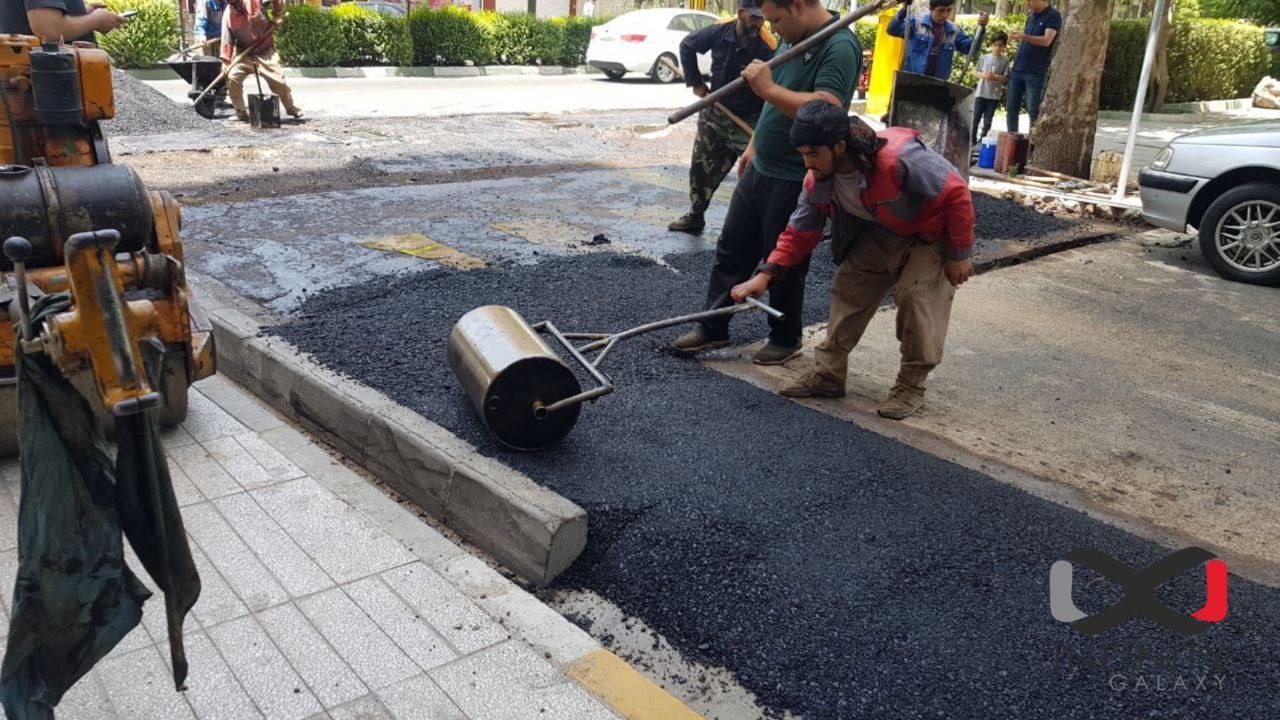Hot Mix Asphalt Paving: Your Portal to Costs Angled Parking Solutions
Hot Mix Asphalt Paving: Your Portal to Costs Angled Parking Solutions
Blog Article
Hot Mix Asphalt: Redefining Roadway Building And Construction Requirements
Hot Mix Asphalt (HMA) is significantly altering the landscape of roadway building practices, setting brand-new performance criteria and reshaping sector requirements. The implications of HMA in redefining roadway construction criteria are profound, offering a compelling instance for a better examination of its transformative abilities in modern engineering techniques.
Advantages of Hot Mix Asphalt
Hot Mix Asphalt (HMA) uses countless advantages that make it the favored choice for paving roads. One of the vital benefits of HMA is its capability to hold up against hefty traffic loads and severe climate conditions, guaranteeing resilient efficiency.
In addition, the smooth surface area coating of HMA lowers rolling resistance, improving fuel effectiveness for automobiles and reducing general transport expenses. The fast construction time associated with HMA projects further enhances its cost-effectiveness by reducing labor and traffic disturbance expenses - Hot Mix Asphalt. The recyclability of HMA products makes it an eco sustainable choice for road construction tasks.
Long Life and Longevity of HMA
With a tested track record of withstanding hefty traffic loads and rough weather problems, Warm Mix Asphalt (HMA) stands out for its exceptional durability and durability in road building tasks. By supplying a secure and smooth riding surface area for chauffeurs, HMA minimizes wear and tear on lorries and enhances general roadway safety and security.

Ecological Advantages of HMA
Increasingly, roadway construction projects are transforming to Hot Mix Asphalt (HMA) for its substantial environmental benefits. HMA is a lasting paving product that supplies several advantages in regards to ecological influence. One of the key advantages of HMA is its recyclability. The product can be recycled and reused numerous times, minimizing the requirement for virgin products and reducing the amount of waste sent out to landfills. This recycling process likewise assists save all-natural sources and lowers energy consumption connected with manufacturing new asphalt.
Moreover, HMA pavements are known for their ability to reduce stormwater runoff. The smooth surface area of HMA roadways enables rain to stream efficiently into the ground, reducing disintegration and lessening the danger of flooding. This can have a favorable effect on the bordering ecological communities by preserving natural water circulation patterns and protecting the top quality of water bodies.
HMA in Road Construction Projects
Road building and construction tasks benefit from HMA's quick building time, permitting for faster completion of roads and lessening website traffic disruptions. In general, integrating HMA into road building jobs leads to resilient, cost-efficient, and eco-friendly streets that satisfy the demands of modern-day transport systems.
Impact of HMA on Infrastructure
The comprehensive use Hot Mix Asphalt (HMA) in road construction projects significantly affects the total facilities high quality and longevity. HMA provides a smooth and sturdy driving surface that enhances road safety and security by minimizing and lowering crashes lorry deterioration. This, in turn, leads to decrease maintenance prices for both automobiles and the roadway itself. In addition, HMA's versatility allows it to adapt to differing weather, protecting against fractures and potholes that can jeopardize the architectural stability of roads.
Moreover, making use of HMA in facilities tasks adds to ecological sustainability. HMA is a recyclable product, which my site implies that old asphalt can be recycled in brand-new road building, lowering the need for virgin products and lessening waste. This not only preserves natural resources however also lowers the carbon footprint related to road building and construction. To conclude, the effect of HMA on facilities is extensive, advertising much safer roadways, cost-effectiveness, and ecological responsibility in road building tasks.
Conclusion
To conclude, Hot Mix Asphalt (HMA) has shown to be a game-changer in road construction standards due to its exceptional effectiveness, resilience, and cost-effectiveness. With its capability to stand up to heavy traffic loads and harsh weather, HMA uses a resilient and trustworthy service for infrastructure tasks. Its smooth riding surface area, resistance to splitting, and ease of maintenance make it a leading selection for check my blog improving road safety and lowering ecological impact. HMA sets a brand-new criteria for high-quality and lasting facilities development.
With a tested track document of standing up to hefty web traffic lots and harsh weather condition conditions, Hot Mix Asphalt (HMA) stands out for its remarkable long life and sturdiness in roadway building tasks.Making Use Of Hot Mix Asphalt (HMA) in road building and construction projects uses numerous benefits in terms of toughness and sustainability.Roadway construction learn this here now jobs benefit from HMA's fast construction time, allowing for faster conclusion of roads and lessening website traffic disruptions.The comprehensive usage of Hot Mix Asphalt (HMA) in roadway construction projects substantially affects the total infrastructure quality and longevity. In final thought, the influence of HMA on framework is profound, promoting safer roads, cost-effectiveness, and environmental obligation in road building tasks.
Report this page